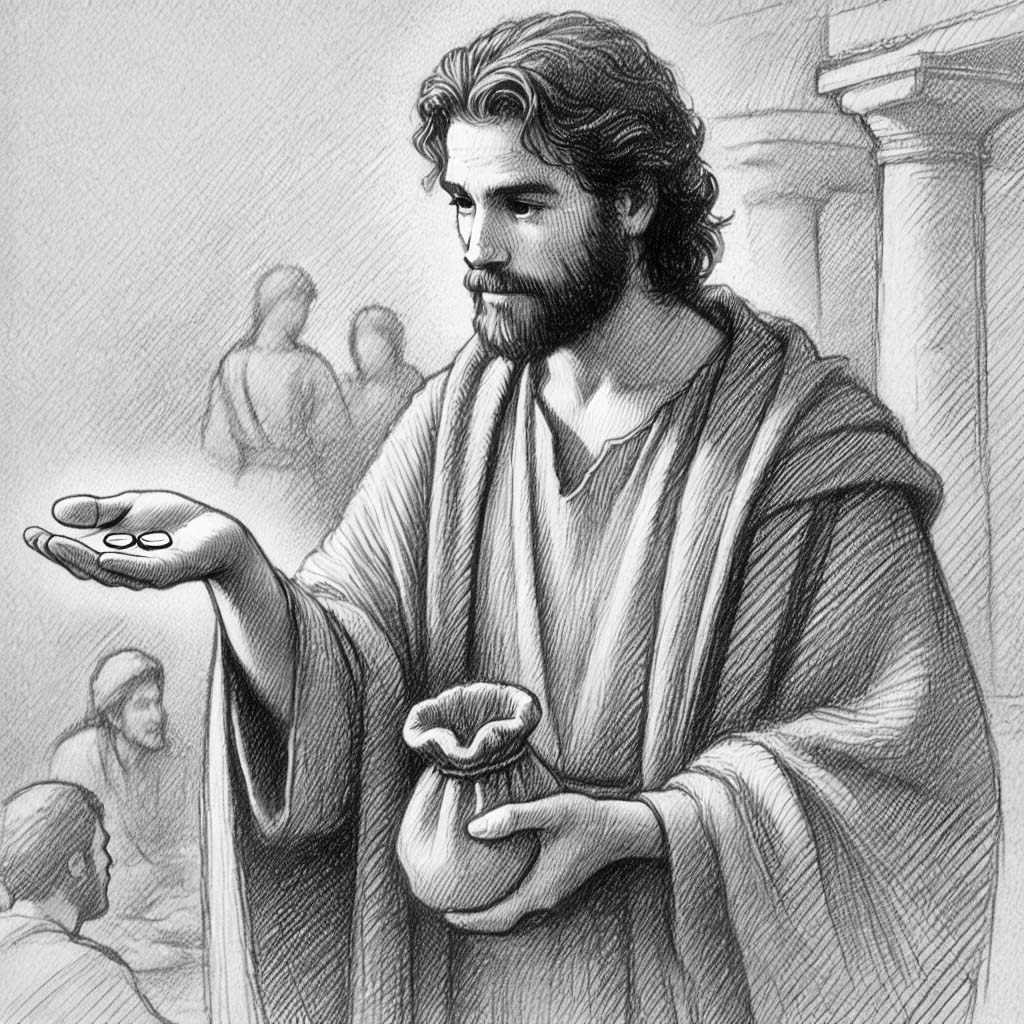The Giver – Judas

Judas Iscariot, though often remembered solely for his betrayal, exemplifies the role of the giver in several ways. For example, he was responsible for managing the disciple’s finances and was also “given to” by Jesus. Jesus extended to Judas an opportunity to serve, to walk closely with Him, and to be part of God’s redemptive plan. In calling Judas to be one of the twelve disciples, Jesus gave him an incredible chance to experience firsthand the ministry of the Messiah—a privilege few others had. Judas was given a trusted place among Jesus’ closest followers, a position that came with responsibilities, blessings, and transformative potential.
Chosen by Jesus, Judas walked with Him for years, hearing teachings, witnessing miracles, and sharing in the mission of spreading the Kingdom of God. This calling meant that Judas was part of a close-knit circle, invited into experiences that demonstrated Jesus’ love, power, and compassion. Judas was given a chance to grow in faith and character through his proximity to Christ by being part of the disciples.
Judas was given a unique role of responsibility as the keeper of the group’s funds. Holding the purse required trust and dependability, and Jesus entrusted Judas with this role. Managing finances meant that Judas supported the ministry practically, facilitating their daily needs as they traveled from place to place. Although he later misused this role, his position as treasurer shows that he initially held a significant, supportive role in the ministry.
Furthermore, Judas’s dedication to Jesus’ ministry is evident in his willingness to give up his former life to follow Jesus. Like the other disciples, he sacrificed much to join Jesus on this journey, displaying commitment to the cause, even though he struggled with personal motives later. Judas’s journey reflects that he was devoted, at least for a time, to being part of this extraordinary mission.
Even after the betrayal, Judas showed remorse and sorrow for his actions. He attempted to give back the silver, admitting, “I have sinned, for I have betrayed innocent blood” (Matthew 27:4). Though he could not find the forgiveness he desperately sought, his regret shows he was aware of the weight of his actions and the betrayal’s cost. This remorse indicates that Judas had a conscience troubled by what he had done, and he recognized the opportunity he had lost.
Finally, Judas’s tragic betrayal became part of God’s redemptive plan. Jesus, fully aware of Judas’s impending actions, still called him “friend” in the garden (Matthew 26:50), showing compassion even in Judas’s darkest moment. Judas’s actions led directly to the crucifixion, which fulfilled the scriptures and brought salvation to all humanity. In this sense, Judas’s role—even in failure—gave to God’s greater purpose.
Through all of this, we see that Judas was not only given the role of a giver but was himself given much trust, opportunity, responsibility, and even grace despite his failings. His story serves as a profound reminder of the gifts Jesus offers to each of us, along with the importance of staying true to the calling we have been given. A true giver operates with transparency, integrity, and a genuine desire to support God’s work, reflecting the heart of Jesus, who gave everything for others. Judas’s failure to embody these qualities offers a cautionary tale: the role of a giver is sacred, meant to be an act of worship and service, not personal gain.
